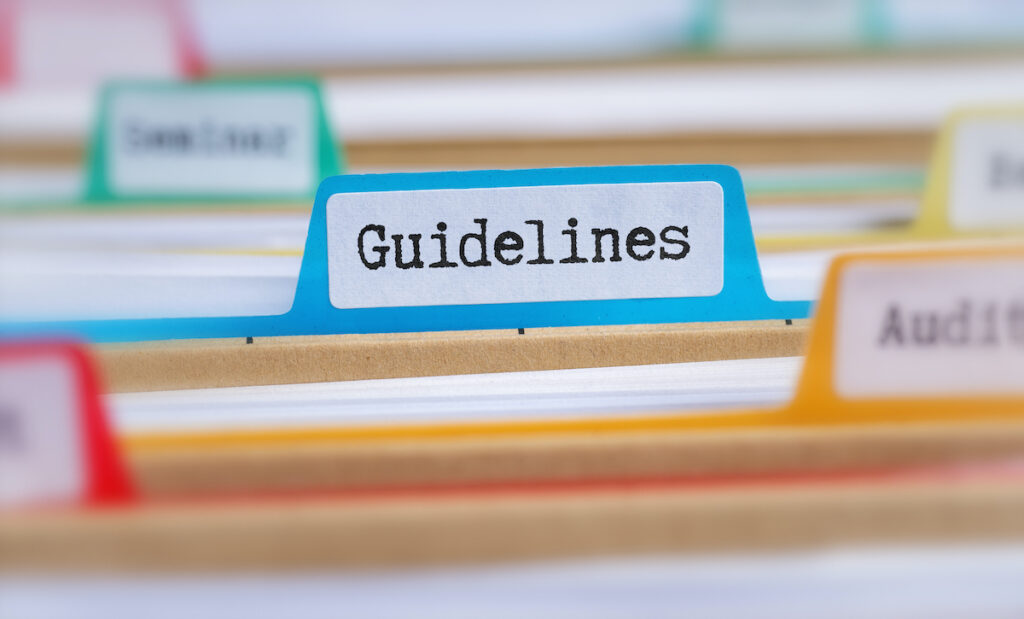Antidepressant withdrawal or depression relapse? Guidelines unclear

Safely going off antidepressants is important to millions of people all over the world. In England, 8.32 million adults were prescribed antidepressants in 2021/2022, compared to 7.5 million pre-pandemic (The Pharmaceutical Journal, 2022; NHSBSA, 2022).
Many thousands are and will be eligible to conclude antidepressant treatment. Summarising NICE and NHS guidelines, the Royal College of Psychiatrists advises patients “Usually, you don’t need to take antidepressants for more than 6 to 12 months.” (NICE, 2022; Royal College of Psychiatrists, 2020).
Remarking “a large proportion of patients prescribed ADs do not have a depression diagnosis”, a study analysing 1995–2011 NHS statistics found nearly a quarter of those prescribed antidepressants were taking them for more than a year, with 2/3 of long-term users taking them more than 2 years (Mars et al., 2017). Antidepressant prescribing trends being what they are, those proportions have likely increased (Public Health England et al., 2019).
Universally, patients are urged to ask their doctors for advice about coming off. They might be told to taper over a couple of weeks, such as ‘halve the dose for a week, halve it for another week, then stop’ (Guy et al., 2020). Or, against all reason, prescribers might tell patients to skip doses (Framer, 2021; Wilson, 2017), though this has long been well known to cause withdrawal symptoms (NICE, 2022).
However, systematic reviews of such conventional modes of antidepressant discontinuation found about 50% will experience uncomfortable and possibly debilitating withdrawal symptoms (Davies & Read, 2019; Jauhar & Hayes, 2019). There is evidence showing that gradually tapering antidepressants is a better guarantor of successful discontinuation, minimising the risk of withdrawal symptoms or relapse (Horowitz & Taylor, 2019; Framer, 2021).
With such a pressing need for good medical advice about tapering, what do current practice guidelines recommend? Sorensen and his co-authors (2022) sought to find out.

Tapering off antidepressant treatment is often associated with withdrawal symptoms. What do current guidelines recommend for safe discontinuation?
Methods
The authors conducted a systematic review of English-language depression guidelines issued by national health authorities and major national or international professional organisations in the United Kingdom, the United States, Canada, Australia, Singapore, Ireland, and New Zealand. The quality of the guidance regarding tapering and discontinuation was assessed using the AGREE II tool.
Results
Out of 1,123 candidate documents, the authors found 21 clinical practice guidelines that met criteria: 7 from the United States; 5 from the United Kingdom; one from each of the following countries: Canada, New Zealand, Scotland, Singapore, Ireland, and Australia/New Zealand; 3 issued by international organisations. All were the most recent versions published between 1998 and 2020. Of the 21 clinical practice guidelines, 14 reported conflicts of interest for authors. Of those 14 guidelines, 9 reported conflicts from all of the authors, and the remaining 5 reported conflicts from at least one of the authors.
The authors painstakingly analysed the content of each guideline with the primary objective of assessing “the extent and content of the guidance on tapering and discontinuing of antidepressants”. As a secondary objective, AGREE II was applied to appraise the quality of this specific guidance.
Regarding maintenance antidepressant treatment after symptomatic remission, 17 guidelines (81%) specified a minimum of 6 months, but 19 (90%) provided no direct guidance to discontinue the drug when maintenance treatment ends.
Only 15 of the 21 (71%) guidelines recommended discontinuing antidepressants by gradually tapering the dose. These 6 provided no tapering guidance at all:
- Health Service Executive and Irish College of General Practitioners, Ireland. Guidelines for the management of depression and anxiety disorders in primary care (2016).
- Healthcare Improvement Scotland and Scottish Intercollegiate Guidelines Network, UK. Management of perinatal mood disorders (2012).
- Royal College of Psychiatrists, UK. Guideline for the management of late-life depression in primary care (2003).
- Agency for Health Care Policy and Research Practice, US. Treating major depression in primary care practice – an update of the Agency for Health Care Policy and Research Practice Guidelines (1998).
- American Psychological Association, US. Clinical practice guidelines for the treatment of depression across three cohorts (2010).
- American College of Physicians, US. Nonpharmacologic versus pharmacologic treatment of adult patients with major depressive disorder: A clinical practice guideline from the American College of Physicians (2016).
To its credit, in 2019 the Royal College of Psychiatrists issued a position statement calling on NICE to recommend gradual tapering of antidepressants, while in 2020 issued patient guidance with more detail, including sample dose-reduction regimens. NICE followed with updated NICE Guideline Depression in adults in 2022.
As for tapering methodology:
- Nine (43%) of the CPGs (clinical practice guidelines) recommended tapering over at least 4 weeks to 6 months.
- Six (29%) recommended only that antidepressants be ‘tapered/discontinued slowly over an extended period of time’ or to ‘taper over at least several weeks’.
- Two of the guidelines suggested rapid or abrupt discontinuation. One, reasonably, when serious adverse events occurred. The other one perplexingly advised abrupt discontinuation for patients experiencing discontinuation symptoms despite a slow taper.
None of the guidelines explicitly explained what is meant by a taper, leaving each clinician to their own preference, probably using standard available doses with precipitous differences between the decremental steps. No guidelines suggested splitting tablets or using liquid drugs to obtain intermediary dosages for a more gradual taper.
Though clinician recognition of withdrawal symptoms while reducing or after ceasing antidepressants is crucial to successfully manage an antidepressant taper, the authors found that only 15 (71%) of the documents advised withdrawal symptoms might emerge; depressive relapse/recurrence was mentioned as a risk in 14 (67%), but only 6 (29%) cautioned against misinterpreting withdrawal symptoms as depressive relapse – a very serious gap.
Advice about what to do if withdrawal symptoms appear was scarce, appearing in only 5 (24%) of the guidelines, with 4 advising restoring the full dose of the drug and tapering more slowly. The American Psychiatric Association suggested continuing with a more gradual taper or “change to a brief course of fluoxetine, e.g., 10 mg for 1–2 weeks, and then discontinue the fluoxetine”.
None of the guidelines referenced patients’ views and preferences related to tapering and discontinuing antidepressants. None mentioned psychological challenges to discontinuing antidepressants or provision of psychological support for patients coming off antidepressants.
According to the AGREE 2 appraisal, the quality of the guidelines was generally rated as low, varying considerably among the documents. With >70%, indicating ‘high quality’, the overall rating of all guidance ranged between 8% and 33%, with National Institute for Health and Care Excellence (NICE) ‘Depression in adults: recognition and management’, taking the top place.

Clinical guidelines provide inadequate information on antidepressant withdrawal, while slow taper is open to interpretation by the individual prescriber.
Conclusions
The study concluded that in general, major guidelines give clinicians only vague guidance on how to help patients taper and discontinue antidepressants safely. Clinicians are left to improvise their own tapering strategies, while the lack of guidance on distinguishing between withdrawal and relapse could lead to and resumption of unnecessary long-term antidepressant treatment. To better inform guidance, the authors called for better randomised trials investigating tapering antidepressants.

Major guidelines on antidepressant discontinuation only give clinicians vague guidance on distinguishing withdrawal from relapse.
Strengths and limitations
Though in the background for decades, the issue of safe antidepressant deprescribing has only recently come to the fore (Davies et al., 2019). To improve clinical practice, the scope of what clinicians know about the subject must be ascertained. This review provides that scoping.
Although limited to guidelines published in English, the review analysed an aggregation that probably has the most impact on clinical practice in antidepressant prescribing. There is no question that, worldwide, clinicians have long gotten no specific guidance at any step of their training about what “taper” means when it comes to psychotropic drugs, and this study illustrates that. The parameters of the AGREE II tool are subjective, some may consider the quality evaluations to be too harsh. The researchers adhered to a prespecified protocol and have made their findings available for review in supplementary materials.
Too late to be included in this review, NICE Guideline Depression in adults, was issued in 2022 with more complete tapering information, including an exponential taper to be adjusted to the tolerance of the individual patient. It advised clinicians “slowly reduce the dose to zero in a step-wise fashion, at each step prescribing a proportion of the previous dose” and “consider using smaller reductions”. While this is still not very specific, it is a significant improvement over the guidance reviewed in this paper.

The review of international guidelines on identifying withdrawal after tapering antidepressants illustrates the lack of consensus in clinical practice.
Implications for practice
Until very recently, prescription and maintenance have been the primary focus of antidepressant prescribing, with little thought about the best ways to come off the drugs (Horowitz & Taylor, 2019). This survey found that available clinical guidance, which was often difficult to find, provided little advice for clinicians in this regard.
Clearly relying on an outdated evidence base, this guidance had not been revised according to the last several years of scholarly advances in the field, despite ever-growing populations taking antidepressants and needing to discontinue them. The authors contend that “what is needed is smaller dose reductions, not longer time”, pointing to the hyperbolic relationship between antidepressant dose and serotonin transporter occupancy, which suggests gradual hyperbolic reduction may be the optimal tapering strategy. None of the guidance documents refer to this.
The authors suggest that the gaps in the guidance may cause clinicians to lack confidence in discontinuing antidepressants. Other studies, not included in this review, show some evidence for this (Carville et al., 2019). In particular, the authors are very concerned that clinicians lack concrete guidance in distinguishing withdrawal from relapse, as the symptoms overlap. Mistaking any deterioration in symptom pattern for relapse has been a pervasive error in research as well as clinical practice (Framer, 2021; Leeuwen, et al., 2021), generating a false assumption that continuation of the antidepressant is required to prevent relapse, as well as reluctance to deprescribe the drug. This unnecessary continuation of long-term drug treatment – may explain why a disproportionate 2/3 are on antidepressants for more than 2 years (Mars et al., 2017).
Finally, the authors note that the lack of guidance on assisting patients in managing withdrawal symptoms and a transition from psychological dependence on the drugs, such as the provision of psychotherapy and peer support, may cause patients to give up on efforts to discontinue antidepressants.
This paper also has implications for research in that it provides a scope for the definition of optimal practices in coming off antidepressants, which would greatly improve the current clinical guidelines. Such research would enhance the very scarce evidence base for tapering or discontinuation regimens, existing randomised clinical trials (RCTs) in this area have very low certainty (Leeuwen, et al., 2021) – largely unacknowledged in the guidelines.
Pending published results of RCTs, the authors suggest that tapering guidance could be improved by reference to other types of evidence such as non-randomised and retrospective studies of tapering strips, pharmacologically rational theory on withdrawal symptoms and dose-reduction regimens, anecdotal records of patient experiences, and expert knowledge, saying:
Generally, an approach to tapering of trial and error with shared decision-making, acknowledging the many uncertainties of antidepressant tapering and withdrawal symptoms, may be recommended at this stage.

The gaps in the guidance may cause clinicians to lack confidence in discontinuing antidepressants, leaving many patients on them unnecessarily.
Statement of interests
Adele Framer, under the pseudonym Altostrata, is the founder and administrator of SurvivingAntidepressants.org, a Web community of 18,000 members offering tapering information and volunteer peer support for withdrawal from psychiatric drugs. She does not receive any compensation, monetary or otherwise, for serving in this capacity. Donations underwrite site expenses. Adele is an associate of the International Institute for Psychiatric Drug Withdrawal and a founding member of Outro Health, a venture providing medical services for tapering psychiatric drugs.
Links
Primary paper
Sørensen, A., Jørgensen, K. J., & Munkholm, K. (2022). Description of antidepressant withdrawal symptoms in clinical practice guidelines on depression: A systematic review. Journal of Affective Disorders, 316, 177–186. https://doi.org/10.1016/j.jad.2022.08.011
Other references
Carville, S., Ashmore, K., Cuyas, A., & Downes, N. (2019). Patients’ experience: Review of the evidence on dependence, short term discontinuation and longer term withdrawal symptoms associated with prescribed medicines (National Guideline Centre) [Rapid Evidence Assessment]. Royal College of Physicians. https://www.rcplondon.ac.uk/projects/outputs/patients-experience
Davies, J., & Read, J. (2019). A systematic review into the incidence, severity and duration of antidepressant withdrawal effects: Are guidelines evidence-based? Addictive Behaviors, S0306460318308347. https://doi.org/10.1016/j.addbeh.2018.08.027
Davies, J., Read, J., Hengartner, M. P., Cosci, F., Fava, G., Chouinard, G., van Os, J., Nardi, A., Gøtzsche, P., Groot, P., Offidani, E., Timimi, S., Moncrieff, J., Spada, M., & Guy, A. (2019). Clinical guidelines on antidepressant withdrawal urgently need updating. BMJ, l2238. https://doi.org/10.1136/bmj.l2238
Framer, A. (2021). What I have learnt from helping thousands of people to taper off antidepressants and other psychotropic medications. Therapeutic Advances in Psychopharmacology. https://doi.org/10.1177/2045125321991274
Horowitz, M. A., & Taylor, D. (2019). Tapering of SSRI treatment to mitigate withdrawal symptoms. The Lancet Psychiatry, 6(6), 538–546. https://doi.org/10.1016/S2215-0366(19)30032-X
Jauhar, S., & Hayes, J. (2019). The war on antidepressants: What we can, and can’t conclude, from the systematic review of antidepressant withdrawal effects by Davies and Read. Addictive Behaviors, 97, 122–125. https://doi.org/10.1016/j.addbeh.2019.01.025
Leeuwen, E. van, van Driel, M., De Sutter, A., Robertson, L., Kendrick, T., Horowitz, M., Donald, M., & Christiaens, T. (2021). Approaches for discontinuation versus continuation of long-term antidepressant use for depressive and anxiety disorders in adults (Review). Cochrane Database of Systematic Reviews. https://doi.org/10.1002/14651858.CD013495.pub2
Mars, B., Heron, J., Kessler, D., Davies, N. M., Martin, R. M., Thomas, K. H., & Gunnell, D. (2017). Influences on antidepressant prescribing trends in the UK: 1995–2011. Social Psychiatry and Psychiatric Epidemiology, 52(2), 193–200. https://doi.org/10.1007/s00127-016-1306-4
NHSBSA. (2022, August 2). Medicines Used in Mental Health – England – 2015/16 to 2021/22 | NHSBSA. NHS Business Services Authority. https://www.nhsbsa.nhs.uk/statistical-collections/medicines-used-mental-health-england/medicines-used-mental-health-england-201516-202122
NICE. (2022). NICE Guideline Depression in adults: NICE guideline [NG222] June 2022. In Depression in adults: Recognition and management. National Institute for Health and Care Excellence. https://www.nice.org.uk/guidance/ng222
The Pharmaceutical Journal, PJ, July 2022, Vol 309, No 7963;309(7963). https://doi.org/10.1211/PJ.2022.1.149158
Rabeea, S.A., Merchant, H.A., Khan, M.U. et al. (2021). Surging trends in prescriptions and costs of antidepressants in England amid COVID-19. DARU J Pharm Sci 29, 217–221. https://doi.org/10.1007/s40199-021-00390-z
Royal College of Psychiatrists. (2020). Stopping antidepressants. Royal Colllege of Psychiatrists. https://www.rcpsych.ac.uk/mental-health/treatments-and-wellbeing/stopping-antidepressants
Taylor, S., Annand, F., Burkinshaw, P., Greaves, F., Kelleher, M., Knight, J., Perkins, C., Tran, A., White, M., & Marsden, J. (2019). Dependence and withdrawal associated with some prescribed medicines: An evidence review. Public Health England. https://assets.publishing.service.gov.uk/government/uploads/system/uploads/attachment_data/file/940255/PHE_PMR_report_Dec2020.pdf
Wilson, C. (2017, July 7). People are hacking antidepressant doses to avoid withdrawal. New Scientist. https://www.newscientist.com/article/2140106-people-are-hacking-antidepressant-doses-to-avoid-withdrawal/
Photo credits
Source link
#Antidepressant #withdrawal #depression #relapse #Guidelines #unclear

